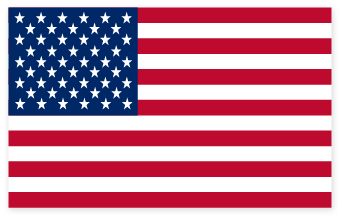If you know that you can make a bracha after Nisan, meaning that there will still be flowers on the trees it is better to say it after than say it during Adar. However, if you are not sure it better to say it in Adar if you actually see a tree flowering.
Explanation:
The Gemara Brachot 43b: he who goes out during the days of Nissan and sees trees flowering should say the bracha of “Shelo Chasar BOlamo…”
What do the words ‘days of Nissan’ mean?
Can we make a bracha at night?
The Mishna in Bikkurim 1:6 writes from Atzeret until Chag (Shavuot until Sukkot) you can bring Bikkurim from Chag until Chanukah you can bring but not say the pesukim, R’ Yehuda ben Betaira said he can even Shulchan Aruch the pesukim.
The Bartenura explain you don’t say the pesukim after Sukkot since it says in the Torah by Bikkurim, “And you shall be happy with all the good.” There is no reading pesukim when there is joy, until Sukkot since then he gathers his produce from the fields and is happy. After Sukkot even though there are still plenty of fruit to bring however the joy ends at Sukkot so he can’t read the special pesukim. After Chanukah he cannot bring since the passuk says he has to bring , “From his land” as long as there is produce left in the fields until Chanukah.
It is clear in the Mishna that you are not allowed to bring Bikkurim the whole year however women are till obligated in the mitzvah like men and It’s not called ‘Zman Grama’, time caused. Since the mitzvah is not dependent in time but in circumstance. (So writes the Turei Even). Shecheyanu is also not a time bound mitzvah even though you can only say it once a year and the women are obligated to say it. So too women are required to say Birkat Hailanot.
If the bracha could only be said during the day then women would be exempted from saying the bracha. That the reason we only say it in Nissan is not because of Nissan itself because then women would be exempt
The question still stands can you say the bracha outside of Nissan?
The Poskim argue.
The Ritva (Rosh Hashanah 11a) Days of Nissan isn’t only Nissan just every place according to when trees bloom. ( so too in the Rokeach).
The Be’er Heitev ads (226:1) even if you see a flower in Adar.
The Birkei Yosef and Sdei Chemed writes according to Kabbalah the bracha really is only for the month of Nissan.
The Shu”t Beit Hayotzer (OH 13) writes that they are just coming to exclude Adar not Iyar.
Shulchan Aruch 226 writes: if you are delayed you can’t say the bracha if the fruit has grown.
The Eshel Avraham understood from the Shulchan Aruch that you my say it after Nissan as long as fruit hasn’t grown.
This is based on the Tur who writes that one can’t say the bracha anymore if the fruit has grown.
The Agudah(Brachot 86:158) and the Tashbetz write that if you didn’t see a tree until the fruit grew you should still make the bracha. The Mordechai adds that even if you saw it blooming nad dint make the bracha you still can.
The Elya Rabah follows the opinion of the Agudah that if you didn’t’ see it until later you may make bracha. The Pri Megadim and the Chaye Adom (63:2) write that if the fruit is full grown it not a good idea to say the bracha.
However, those who follow psak of Marna Shulchan Aruch should not say the bracha after the fruit started growing. So, rules R’ OY in Chazon Ovadia Birkat ilanot seif 7: One should not delay saying the bracha in Adar rather wait until Nissan so you fulfil all the opinions. But if you will not be able to say the bacha in Nissan you may say the bracha in Iyar and not lose the bracha. Then you might rely on the Poskim who say they may say it outside of Nissan as well as the trees it has flowers. In places lie Australia where the trees bloom in Tishrei then they may say the brachot then Chazal were only saying the usual case. So, too you may say it in Adar if the that is when the trees bloom.



